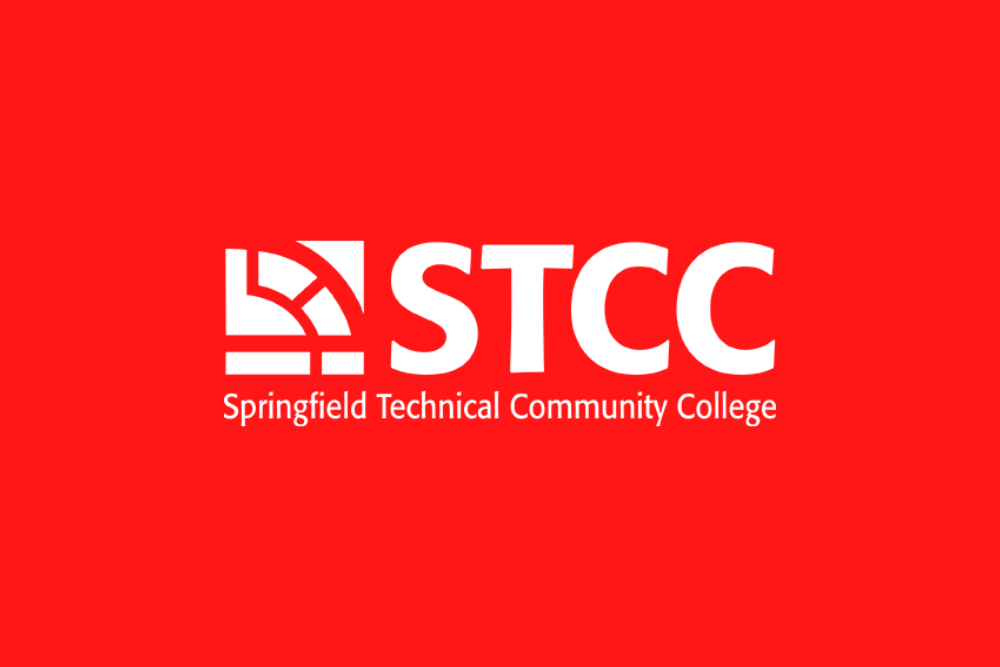D.C. SUMMIT CONNECTS LEGISLATORS WITH COMMUNITY COLLEGE LEADERS | stcc.edu/
D.C. SUMMIT CONNECTS LEGISLATORS WITH COMMUNITY COLLEGE LEADERS | stcc.edu/
D.C. SUMMIT CONNECTS LEGISLATORS WITH COMMUNITY COLLEGE LEADERS
The Community College National Legislative Summit offered Springfield Technical Community College President John B. Cook and STCC trustees an opportunity to speak with lawmakers about federal priorities, including reducing barriers to receive Pell Grants that help low-income students access higher education.
Cook went to the Summit, which is the premier community college advocacy event in Washington, D.C., with STCC trustees Jynai McDonald and Tonia Butler Perez on Feb. 5-8. Massachusetts featured a delegation of close to 40 people, including other community college presidents and trustees as well as staff from the Massachusetts Association of Community Colleges.
“The Summit provided a great opportunity for those of us leading community colleges to learn more about federal policy issues and discuss the priorities of our institutions,” Cook said. “I appreciated meeting face to face with the decision makers in Washington, including Congressman Richard E. Neal, who has been a longtime supporter of STCC.”
STCC, the only technical community college in Massachusetts, serves a diverse student population who seek degrees and certificates in manufacturing, STEM, healthcare, business, social services and the liberal arts. STCC, which is the most affordable college in Springfield, is a federally designated Hispanic Serving Institution and offers a variety of noncredit workforce development programs.
Cook and trustees met with Neal and several Massachusetts legislators. They discussed federal priorities, including tax-free Pell grants as well as establishing Pell Grants for short-term programs that Cook said would greatly benefit STCC students.
Pell Grants enable millions of low-income community college students to pay tuition and fees and meet other college expenses and are the foundation of all other student aid. Increasing the maximum award promotes affordability and student success for low-income students, while reducing their need to borrow.
Trustee Jynai McDonald said, "STCC students have had to overcome so many barriers to make sure they are able to maintain their enrollment. We ought not add an additional barrier to funding their education by taxing the Pell grant and giving them less resources towards achieving academic success."
She commented on the importance of expanding the Pell Grant to short-term programs. "In order to strengthen our workforce we must remove the financial barriers for students. Expansion on the short term Pell grant means that more STCC students get increased access to programs, which means increased access to career opportunities and self-sufficiency for them and their families."
President Cook noted that more than half of STCC’s students receive Pell Grants.
The Summit provided a great opportunity for those of us leading community colleges to learn more about federal policy issues and discuss the priorities of our institutions.John B. Cook, STCC President
“We hope to see these grants expanded to short-term workforce development programs to reduce barriers and provide a more accessible pathway to higher wages and stable careers. This is one of the priorities we discussed with legislators, including Congressman Neal,” he said.
Cook thanked Congressman Neal for his support, noting he has long been a champion for STCC and its students.
In January, Neal announced a $3 million earmark which funded the Cybersecurity Center of Excellence at Springfield Union Station. The funding will be used to establish the center, which will be developed and operated in collaboration with the MassCyberCenter, and serve as a regional CCE for western Massachusetts and beyond.
In 2021, Neal helped STCC secure two grants worth more than $7 million from the U.S. Department of Education to boost student success among Latinx and low-income students in STEM fields.
Over a five-year span, the grants will support science, technology, engineering and math (STEM) programs at the college and welcome more students into the ever-growing field.
The following are among the 2023 community college federal legislative priorities identified by the American Association of Community Colleges:
- Bolster the role of community colleges in workforce development
- Fund key education and workforce programs
- Enact the Dream Act to provide a path to citizenship for undocumented young people
- Reform student aid for today’s students
- End taxation of Pell Grants
“This is my first time ever going, and I really thought it was one of the best summits I’ve ever been to,” said Butler Perez, who joined STCC as a trustee in August 2022. “It was called the New Trustee Academy, and it was the best thing a trustee, and even a president, could have gone to. Trustees and presidents from other colleges were there, and they had some of the same problems we have. It was a good conglomeration of different people from different areas.”
The National Legislative Summit brought together more than 1,000 community college leaders. The event put a spotlight on the importance of community colleges for Congress and the Administration.
Original source can be found here


 Alerts Sign-up
Alerts Sign-up